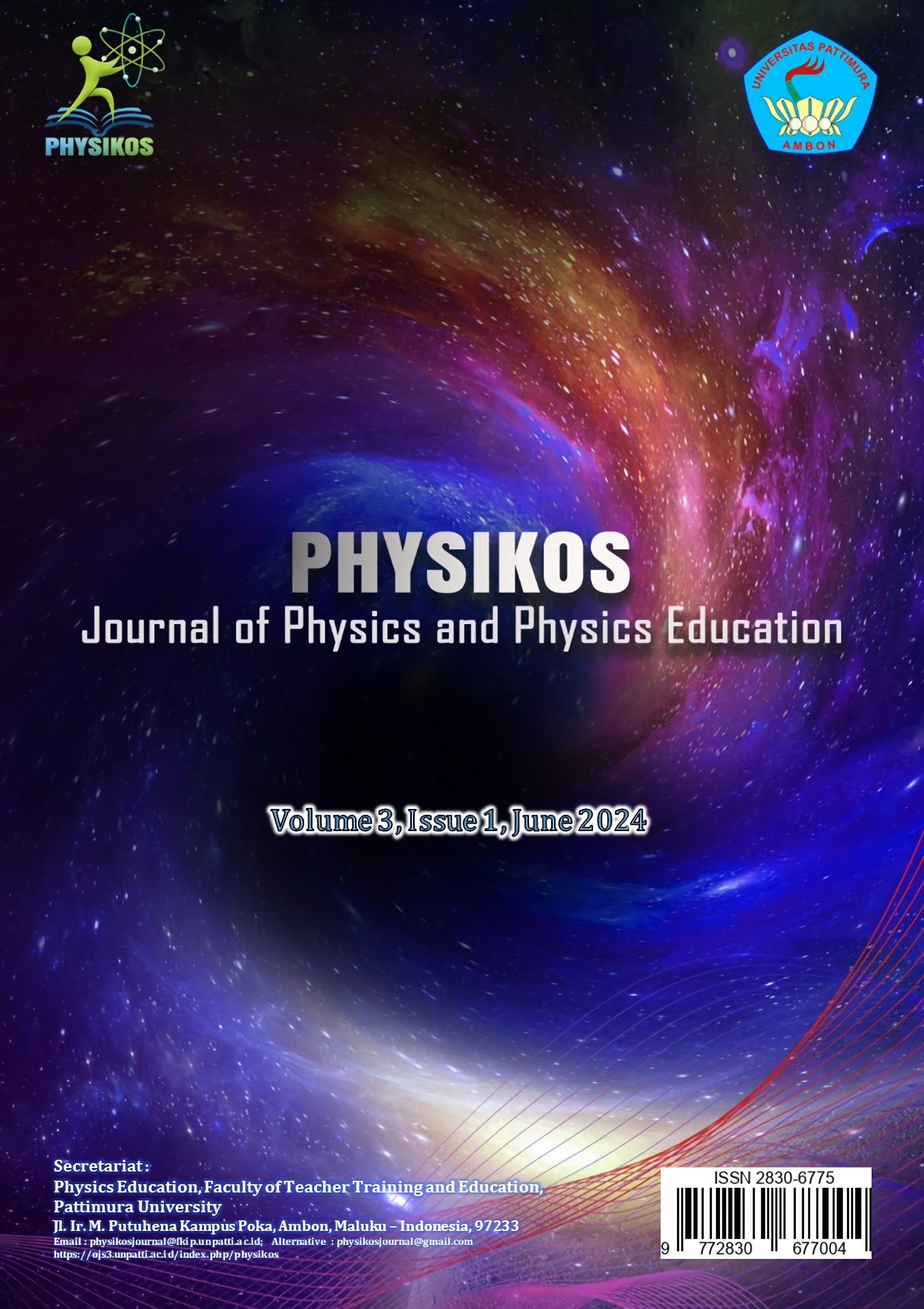Laboratorium Virtual Simulasi PhET Terintegrasi Model Pembelajaran Discovery Learning Meningkatkan Hasil Belajar Kognitif Materi Gerak Parabola
Abstract
This research is a descriptive study with a one group pretest posttest research design. The aim of this research is implementing a PhET simulation virtual laboratory integrated with a discovery learning model to improve students' cognitive learning outcomes on parabolic motion material. The research sample was 29 students of class XI MIA-1. Research data obtained through pretest and posttest were analysed descriptively based on KKM and Ngain score. The results of data analysis show that students' initial knowledge of parabolic motion material is still low with an average pretest score of 22.76. The results of the analysis of students' posttest on parabolic motion material showed that students had reached the KKM with an average posttest score of 77.24, and an average Ngain score of 0.7. Thus it can be concluded that the implementation of the PhET simulation virtual laboratory integrated with the discovery learning model can improve cognitive learning outcomes on parabolic motion material.
Downloads
Copyright (c) 2024 Juliana Nirahua, Dorina Maria Matulessy

This work is licensed under a Creative Commons Attribution 4.0 International License.





